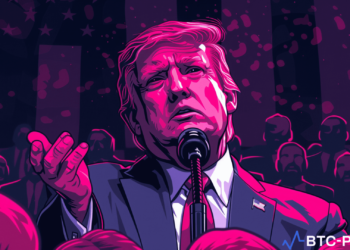CoinSwitch Trims 8% of Its Workforce
According to local news agency, Moneycontrol, the cryptocurrency exchange, CoinSwitch, has laid off a considerable portion of its workforce. With a drop in customer queries attributed to the ongoing bear market, 44 employees from its customer support division faced redundancy.
CoinSwitch, in its statement, explained, “To align with the present volume of customer queries, we right-sized our customer support team.” Resultantly, these decisions impacted 44 members who voluntarily resigned after discussions with their respective managers.
At the moment, CoinSwitch’s LinkedIn profile shows the company employing 519 individuals, making the 44 layoffs account for roughly 8% of its entire team. When approached for comments, CoinSwitch remained unavailable.
CoinDCX Follows Suit with a 12% Reduction
Barely a week after CoinSwitch’s announcement, CoinDCX, another significant crypto trading platform in India, reported a 12% reduction in its staff. Currently, CoinDCX’s LinkedIn page lists 730 employees.
CoinDCX co-founders, Sumit Gupta and Neeraj Khandelwal, stated on August 22nd, “To adapt to the prevailing market challenges, including the 1% TDS, we are reducing our team size by 12%.” They further added the need for cost optimization and investing in automation to enhance efficiency.
The affected employees at CoinDCX have been assured a comprehensive support package. This includes full notice period severance pay, an additional month’s salary, and an extended health insurance scheme among other benefits.
Tax Regime Takes a Toll on Crypto in India
The backdrop to these layoffs is India’s recent imposition of a 30% tax on cryptocurrency gains in 2022. This change led to a significant departure of cryptocurrency service providers and a marked decline in crypto trading activity. Furthermore, the country introduced a 1% Tax Deducted at Source (TDS) for crypto exchanges. This means exchanges are now required to pay 1% on all transfers involving crypto assets.
These regulatory changes have undoubtedly challenged the crypto ecosystem in India, and it remains to be seen how these platforms navigate these headwinds in the future.










